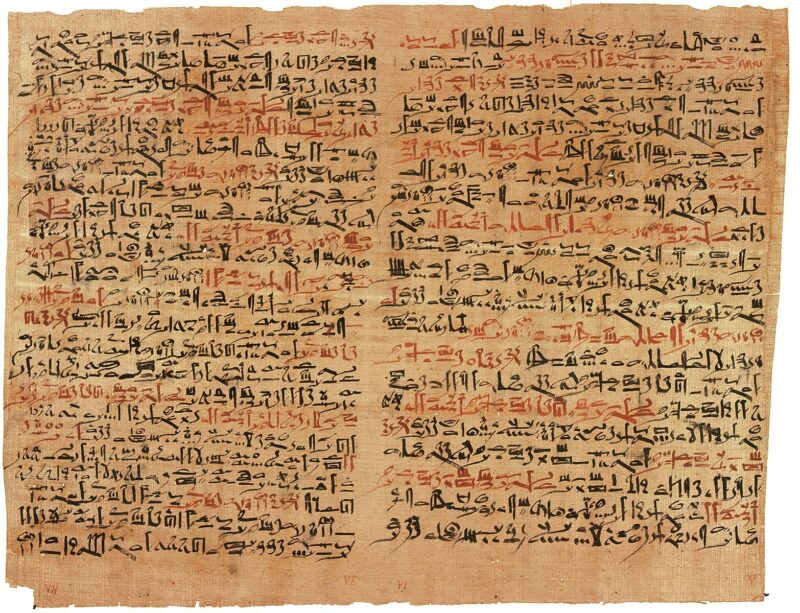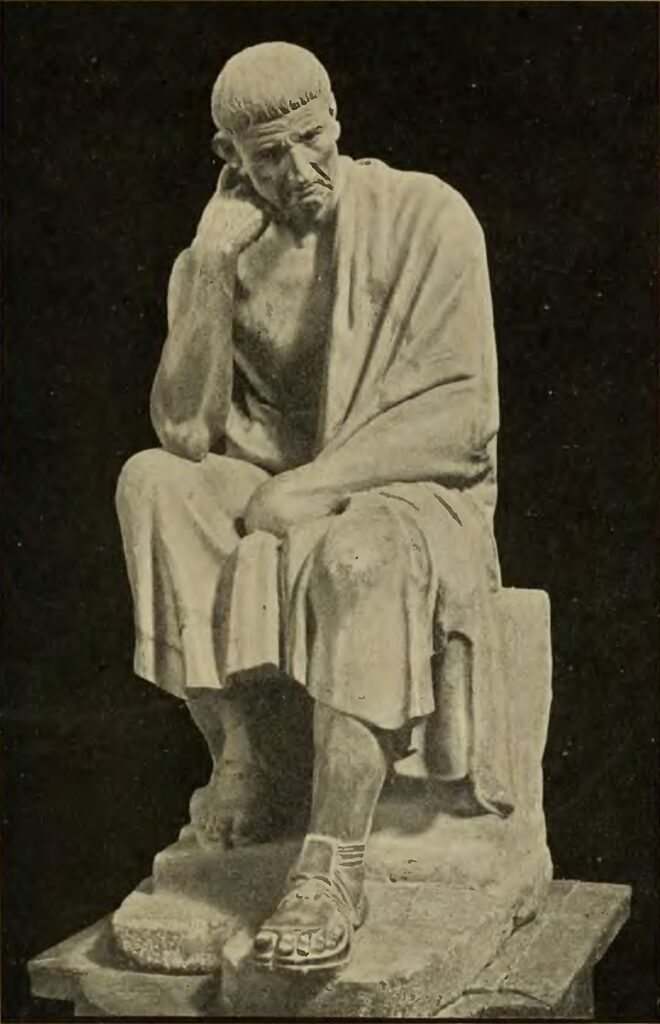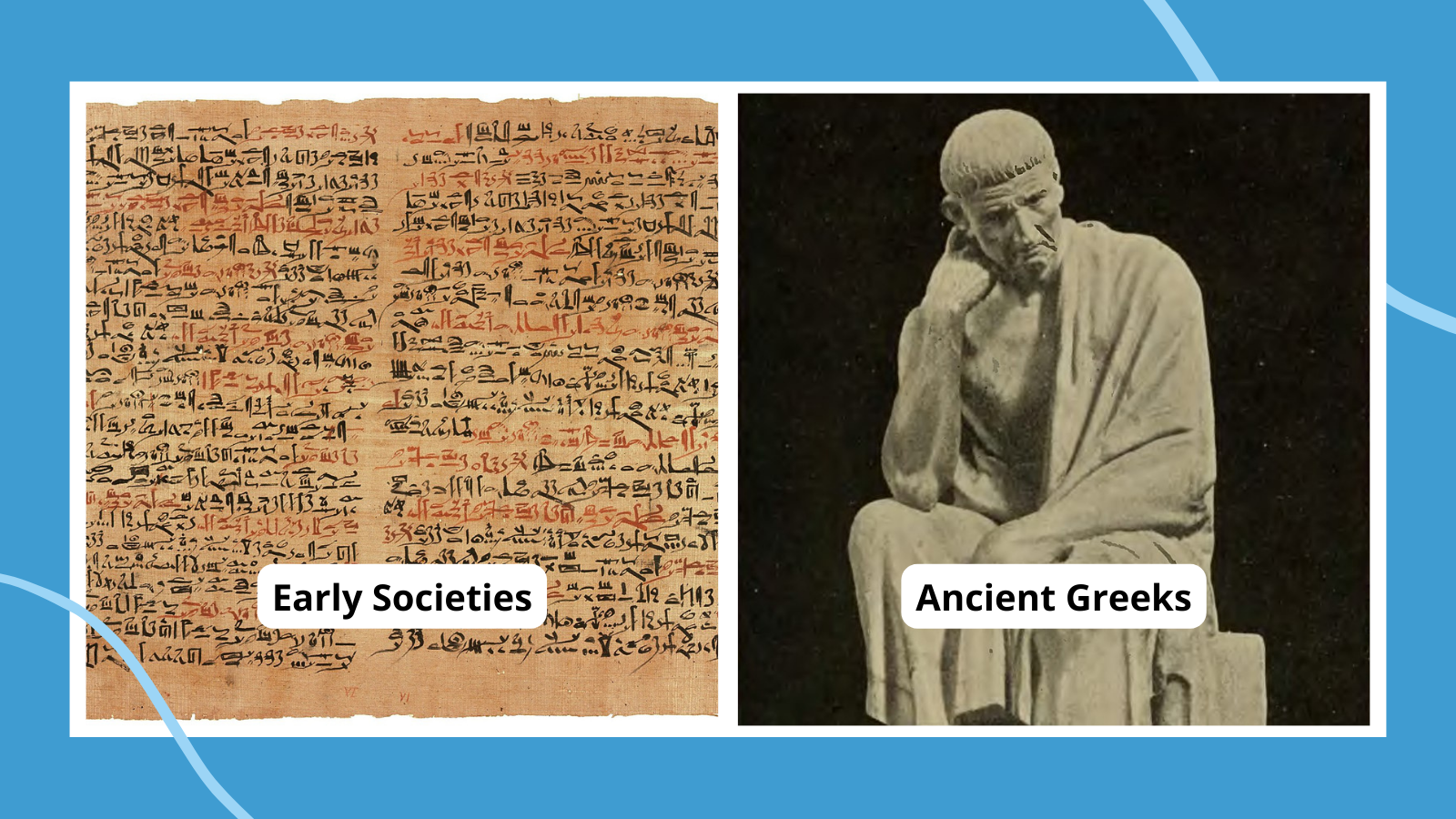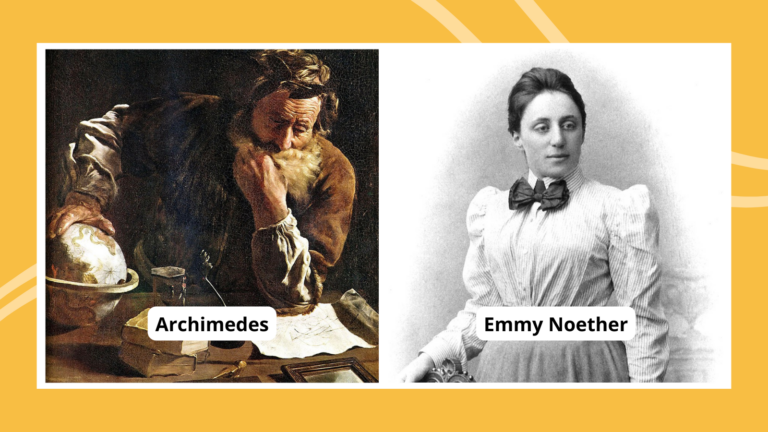Who invented math? It’s a deceptively complex question—a lot harder than 2+2. Math has been around forever, but we are always learning more about it.
Short answer: Many different people invented math, including ancient societies and many famous mathematicians who came along later.
The long answer: It depends on what kind of math you’re asking about. Below is a look at the history of mathematics and the people who contributed to developing math as we know it today.
Jump to:
- What is math?
- Was math invented or discovered?
- So, who invented math?
- Videos about the invention of math
What is math?
According to Britannica Kids, math is the study of numbers. It’s a kind of language that we use every day to calculate distances, tell time, build things, and so on.
Mathematicians think about math in two areas: pure and applied. Pure math is studying math for its own sake. Figuring out how to solve a particular algorithm or tackling a theory, for example. Applied math is using math to solve real-life problems, like building a house or predicting an earthquake.
There are lots of different types of math: arithmetic, algebra, geometry, trigonometry, statistics, and more.
So, since math is already a part of the world, the first question is, can math be invented at all?
Was math discovered or invented?
Some mathematicians think that math is invented, as people name aspects of math or create new ways of solving problems. Other people think that math is always there—the concepts and ideas exist in nature, just waiting for us to discover them.
So, who invented math?
Here’s a look at the history of math and many of the societies and people who contributed to its development.
Early Societies

Math has evolved over thousands of years, with input from thousands of mathematicians. We don’t know exactly how prehistoric humans dealt with math problems (like counting how many berries they picked, or figuring out the distance between two places), but researchers believe that people were using addition, multiplication, and other math concepts in early China, India, and Mesopotamia.
In fact, the oldest clay tablets we have with math inscribed on them are more than 4,000 years old. They’re from Mesopotamia. We also have Egyptian papyrus sheets with math written on them. So, there’s evidence of math from the two oldest societies in the world.
Around 1800 B.C.E., the ancient Babylonians developed a number system based on the number 60 (it’s still used today to think about angle measurement). They were the first people we know of to use actual numbers to represent amounts.
It’s clear that, considering the pyramids and their society, the Egyptians used math. They definitely understood geometry and even had a formula for calculating the volume of a truncated pyramid.
The Ancient Greeks

There’s more information about who invented (or discovered) math concepts as human society evolved. The Greeks, more than 2,500 years ago, started doing more advanced math. Plato, Euclid, and Archimedes are still remembered for their mathematical achievements. For example, Pythagoras studied triangles and he invented what we learn about triangles, called the Pythagorean theorem.
We also know that in ancient Greece, math became something to study, and mathematicians started thinking about specific theories and building on one another’s work.
After Ancient Greece

After ancient Greece, mathematicians continued making new discoveries and new theories and solving new problems. In 17th-century England, Sir Isaac Newton developed the field of calculus on his own. At the same time, in Germany, Gottfried Leibniz was also involved in developing calculus. Some mathematicians have created problems and hypotheses that have never been solved, like Bernhard Riemann, who created the Riemann hypothesis, which has been attempted but never proven.
And throughout history, women have also studied math and invented math concepts. For example, Emmy Noether gained recognition for her innovations in advanced algebra, and Katherine Johnson calculated and analyzed flight paths for spacecraft that sent astronauts to the moon. Mathematicians of color who have made significant contributions to mathematics include Fern Hunt, who created math models to describe different kinds of movement, and Mark Dean, a mathematician and computer scientist who holds patents on the computer that all PCs are based upon.
As math has evolved, people are building on what we know to create new types of math and new ways to use math, like applying math to build computers and create game theory, a branch of applied mathematics. So, maybe the question isn’t who invented math, but what will math invent next?
Videos About the Invention of Math
Use these videos to explore how different math concepts came about.
The Origin of Numbers
How Old Is Zero?
Where Do Math Symbols Come From?
Who Invented Algebra?
Who Invented Geometry?
Who Invented Trigonometry?
More Teaching Resources
- Famous Mathematicians
- MacTutor Math Archives
- Chronological List of Mathematicians
- PBS NOVA: How Ancient Cultures Shaped Mathematics
Also check out Magical Math Puzzles and Number Tricks to Wow Students.
Plus, get all the latest teaching tips and tricks when you sign up for our newsletters!


